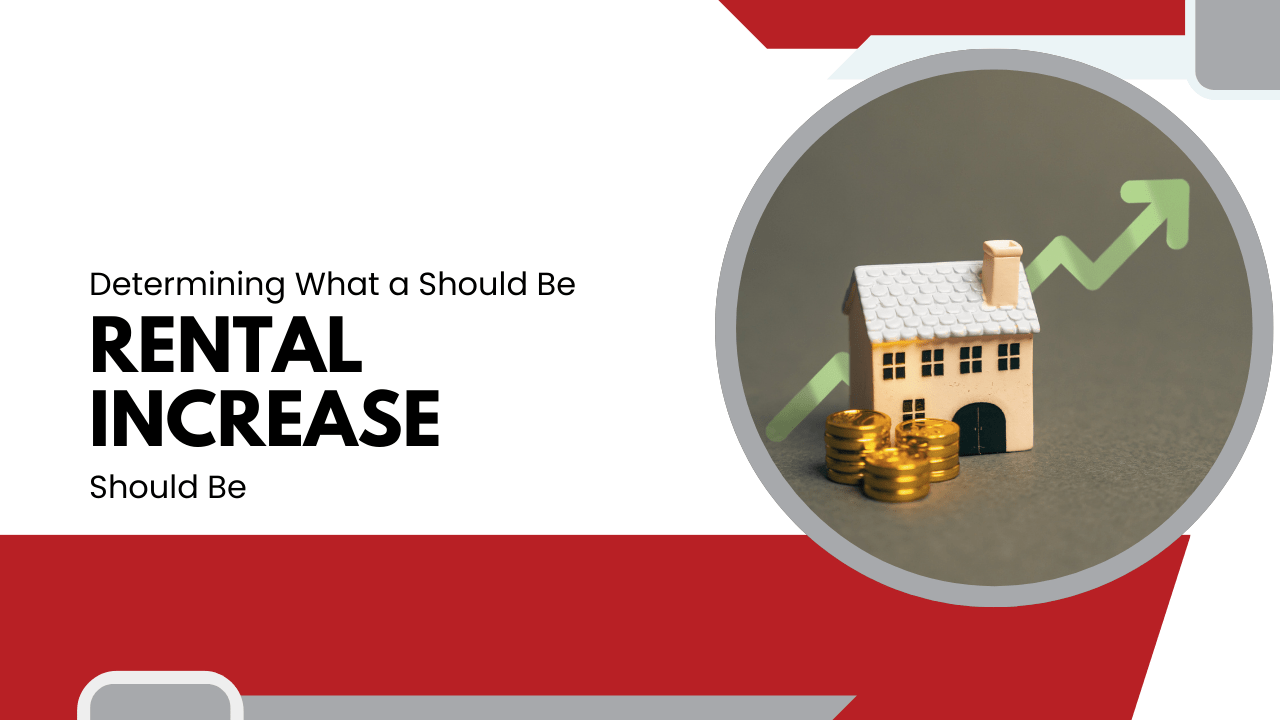Even with all of the information we’ve provided, establishing a rental increase can be tricky. We’re here to help. Contact us at Arlington Realty Property Management, and we’ll make it easier to establish and communicate an increase in rent.
Determining What a Rental Increase Should Be

As renewal time approaches for your rental property, it’s important to think about how much you’ll be raising the rent.
If this fills you with confusion and even frustration, you’re not alone.
A lot of the owners and landlords we talk to struggle with the idea of how much is too much. It’s important to raise the rent; most tenants expect it, and expenses such as insurance, maintenance, and pest control go up year to year. But how can you raise the rent in a way that doesn’t chase away your good tenants? Turnover and vacancy are expensive and best avoided.
At Arlington Realty Property, we have a history of striking the right balance between increased earnings and tenant retention. We use our knowledge of the northern Virginia rental market and our detailed data to settle on a rental increase that serves owners and keeps tenants.
Let’s determine how to increase your rent responsibly.
Why Adjusting Rent is Necessary
Thinking that you don’t want to rock the boat, and maybe it’s best to just leave your rent where it is so you don’t have to worry about your tenants leaving?
We understand that instinct. But we also encounter a lot of landlords whose rents are below market rate just because they’re too worried about raising the rent.
Don’t be worried.
Adjusting rent isn’t just about
maximizing income; it keeps your property in line with market values and ensures your expenses are covered. Here's why it’s essential to consider periodic rental increases:
- Covering Rising Costs. Inflation has impacted every industry and every consumer over the last couple of years. That includes you, as a landlord and rental property owner. Operational expenses like maintenance, utilities, insurance, and taxes often increase over time. Residents know this. They aren’t going to like paying a higher rent, but they’re going to understand that this is happening everywhere.
- Staying Competitive. Maintaining market-aligned rental rates ensures you attract reliable tenants and prevent your property from being undervalued. When you have a great property in a desirable location and you’re a responsive landlord, tenants will need to pay for that value.
- Preserving Property Value. Regularly adjusting rent enables you to re-invest in repairs and renovations, helping sustain the property’s long-term value. You want to make sure you’re offering existing and future tenants a fantastic place to live. You cannot make improvements and upgrades if you don’t have the resources that are required.
The key to a smart rental increase lies in balance—to ensure fairness for tenants while safeguarding your profitability.
Consider the Local Rental Market and Remain Competitive
Before you listed your property on the rental market, you established a rental value based on the market conditions, the competing property, and the unique features that your own property has to offer.
Essentially, you’re doing the same thing when it’s time to increase the rent.
Take a look at where rents are right now. Have they risen since you first listed the home? If your existing tenant was to go out
looking for a home to rent that was just like yours and in the same neighborhood, what would they be paying?
Reliable data is crucial.
Smart investors will have a
property management partner in Arlington who can provide insights and analytics that help with establishing what the rental range is in a particular neighborhood and for a specific property. It’s possible to get some numbers from rental sites like Zillow and HotPads. But to really know what kind of properties and rental values you’re competing with, get good numbers that are accurate, reliable, and nuanced enough to give you a competitive edge when it comes to raising the rent.
Compare Your Rental Property to the Others on the Market
Outside of the market factors themselves, we can tell you that the following things impact where your rental increase will land:
- Property condition
- Property location
- Tenant satisfaction
We’re going to talk about tenant satisfaction in a moment because that’s something that has a larger impact than many owners realize.
Let’s talk about property condition and location, first.
Have you done a good job of maintaining the property while your tenants have rented it? When everything is in generally good condition, routine repairs have been made swiftly, and preventative services have been consistent, there’s likely little for a tenant to complain about in terms of living conditions.
However, smart owners will remember that if a tenant was going to move into a new property, that home would be freshly painted, recently cleaned, and outfitted with some updates and improvements that were installed specifically to attract them to the property.
That’s your competition.
Before you approach existing tenants about a lease renewal, make sure your property is a home that tenants enjoy living in. If
the landscaping has grown messy or those window screens are torn and have not been replaced, it might be difficult to sell a lease renewal that comes with a rental increase.
One way to get a sense of property condition is to conduct a walk-through before you offer a lease renewal to existing tenants. Not only does this help you get a sense of whether the tenants have been taking good care of the home (if they’re not, you hardly want to renew the lease agreement with them), but it also tells you if any attention is needed before you raise the rent.
There’s not much you can do about your property’s location.
However, it will impact your rental increase because residents are willing to pay more for a rental home that’s in a desirable location. If a new grocery store has opened up in the neighborhood or there’s more parking, there’s a good reason to raise the rent a bit more than you would if the neighborhood had fallen into disrepair.
Factor in Tenant Satisfaction and Customer Service
Tenant satisfaction is an important part of any strategy around rental increases. If they’re going to move out at the end of the lease term because they’re unhappy, you likely do not have to spend a lot of time wondering how much to raise the rent. You’ll be able to establish a new market rent for the next tenants you attract.
If tenants are happy, it’s easier to increase the rent. They’re going to be willing to pay more not only for the home they love living in, but also for the service they’re receiving from you as a landlord or your
expert property manager.
When a tenant feels valued, their home is well-maintained, and their concerns are addressed promptly, they're less likely to object to reasonable rental adjustments. They view the increase as an investment in the comfort and consistency you've provided.
On the flip side, dissatisfied tenants are a retention challenge. Frequent complaints about maintenance, lack of communication, or unresolved issues can make tenants leave—even if the rental amount stays the same. High turnover means more time spent searching for new tenants and potential vacancies, which can hurt your bottom line.
Virginia Laws Around Rental Increases
Any rental increase has to comply with
state and local laws.
Virginia does not currently have statewide rent control guidelines, and locally in Arlington, there’s no rent control in the city or the county. Landlords can increase rent by any amount.
There are some timing restrictions that need to be respected, however. For example, you cannot raise the rental amount arbitrarily throughout the year, unless your lease agreement allows it (and it’s unlikely that your lease agreement
does allow it). And, rental property owners are required to provide written notice 30 days in advance. Tenants can vacate the unit within the 30-day notice period if they object to the new rent.
Implementing Rental Increase During Lease Renewals
Even with a happy tenant and a good tenant relationship, communicating a rental increase requires tact and strategy. Here's how we recommend you handle it professionally and without conflict.
- Do Your Research. It’s unwise to approach this as something you simply decided to do. Show your tenants that you understand the local rental market and that you’re not overpricing. Use pricing tools provided by industry experts (that’s us!) to determine a fair increase, and share your resources and research with your tenants.
- Give Ample Notice. The state requirement is 30 days, but there’s no reason to wait that long. You’d likely be in a stronger position by approaching tenants 60 days ahead of the lease’s end date. That way, you can talk about the increase and leave enough time to make plans if your tenants decide to give notice. Sending a proposed amount earlier can give tenants time to prepare and agree.
- Highlight Benefits. This is a good time to focus on all the great reasons to continue renting from you. Pair your rental increase notice with reasons why the increase is fair—improved property conditions, local market trends, or upgraded amenities.
- Offer Incentives. Some landlords find success when they sweeten the deal. Offer perks like discounted parking, free pet rent for a month, or a new appliance.







